By Cynthia ChungThis is the third and last installment to C.S. Lewis’ sci-fi trilogy. The first installment can be viewed here. Below is the transcript of the final lecture I delivered to the Rising Tide Foundation as part of a three-part series on the sci-fi trilogy by C.S. Lewis. 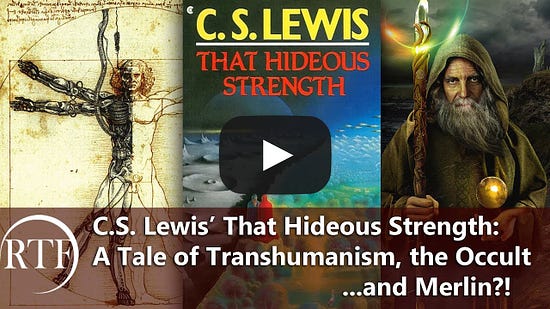 C.S. Lewis opens with a quote from Sir David Lyndsay’s poem “Ane Dialog” published in 1552, where he describes the Tower of Babel: Lewis makes it clear that the title he has selected for this story comes from Lyndsay’s poem about the Tower of Babel. The story of the Tower of Babel is contained within Genesis 11:1-9 where it is written: According to the story, a united human race speaking a single language and migrating eastward, comes to the land of Shinar. There they agree to build a city with the ambition to build a tower with its top reaching into the Heavens. Yahweh, observing their city and tower, confounds their speech so that they can no longer understand each other, and scatters them around the world. The story of “That Hideous Strength” starts with a couple, Jane and Mark Studdock. Jane is a graduate student of literature. Mark is a sociologist. They are recently married (less than a year) and are having marital problems. Jane is also beginning to have these weird dreams, one of them being about an Arab looking prisoner under a sentence of death in discussion with a man wearing a pince-nez. They were speaking in French. Jane doesn’t speak French and thus it is a weird thing to have in a supposed dream. The visitor with the pince-nez then grabs the prisoner’s head gives it a sharp turn and removes it! Then the dream switches over to a different head, with a reddish white beard covered with earth. It belongs to an old man whom some people are digging up in a kind of churchyard, a sort of ancient British, druidical kind of man wearing a long mantle (hooded cape). The morning after, Jane reads about the execution of Alcasan in the newspaper, who was a distinguished radiologist who poisoned his wife. Jane justifies her dream by saying to herself that she must have heard about Alcasan before. Mark works for Bracton College which is one of the colleges under the university Edgestow (both are made up). However, there are constant references to Oxford and Cambridge being their competitors. Keep in mind both Lewis and Tolkien went to Oxford and thus they were very familiar with that crowd and later on Lewis becomes a professor at Cambridge teaching English literature of the 16th century. Thus, Lewis is very familiar with the kind of ideas that were shaping social policy coming out of Oxford and Cambridge, a lot of it not being very good, that is, beneficial to the English people. I think it is pretty evident that he has made up Bracton and Edgestow to represent Oxford and Cambridge so that he could criticise such social policies but in a safe way. Mark has recently been promoted to receive a Fellowship at Bracton College. We soon realise that Mark has this problem that C.S. Lewis has identified as the desire to enter the inner ring, which is a major theme/lesson in the story. I will say more about this later on. Mark finds out that the only reason why he had received the Fellowship was because of Devine (recall Devine from Part 1 of this series “Out of the Silent Planet”), now known as Lord Feverstone having moved up in the ranks. Lord Feverstone has a great deal of influence with Bracton College and in London with members of parliament as well as “the City” of London, in reference to its financial center. Mark had to compete with other candidates for the Fellowship position, he finds out that though his paper was considered weaker than some of the other candidates, he was selected nonetheless because Lord Feverstone had insisted to the College that Mark was the “sort of man” they really wanted. That it was the type of man rather than his qualifications that truly mattered in influencing an educational center... The Progressive Element is the first inner ring that Mark has entered. The inner ring is basically that selective group where they look like they know something that everyone else does not know. It projects an air of superiority and insight into the behind the scenes in power politics. The Progressive Element at Bracton College is in opposition to the Traditionalist School. The Progressive Element, as we will see, is very much about a new science. They have felt frustration over what they call “red tape bureaucracy” which has stood in the way of the emergence of this new science, over trivial matters such as whether something is deemed “immoral” or “unethical” or “illegal.” Thus, the Progressive Element is trying to create reform since they claim you cannot have “real progress” if you are constantly stuck in the old morality, the old traditions of what is right and wrong. We realise the Edgestow University is working closely with the National Institute for Coordinated Experiments (N.I.C.E.). Bracton College is desperate for funding and welcomes N.I.C.E.’s interest. We later find out that N.I.C.E. is into doing vivisections on animals and experiments on humans. The Tavistock Institute did not exist until 1947 (Lewis published “That Hideous Strength” in 1945), however, the Tavistock Clinic was founded in 1920.
The Tavistock Institute of Human Relations is a British not-for-profit organisation that applies social science to contemporary issues and problems. Recall Mark is a sociologist. Sociology is a social science that focuses on society, human social behavior, patterns of social relationships, social interaction, and aspects of culture associated with everyday life. It claims to use various methods of empirical investigation and critical analysis to develop a body of knowledge about social order and social change. While some sociologists conduct research that may be applied directly to social policy and welfare, others focus primarily on refining the theoretical understanding of social processes and phenomenological method. Subject matter can range from micro-level analyses of society (i.e. of individual interaction and agency) to macro-level analyses (i.e. of systems and the social structure). Traditional focuses of sociology include social stratification, social class, social mobility, religion, secularization, law, sexuality, gender, and deviance. As all spheres of human activity are affected by the interplay between social structure and individual agency. Sociology has gradually expanded its focus to other subjects and institutions, such as health and the institution of medicine; economy; military; punishment and systems of control; the Internet; Sociology of Education; social capital; and the role of social activity in the development of scientific knowledge. Source, for definition and overview of Sociology, Wikipedia. Mark is at a meeting of Bracton College, over whether Bragdon wood (owned by Bracton College and the University of Edgestow) should be allowed to be sold to N.I.C.E. It is an ancient wood and is thought to be the ground where a good deal of England’s old history is contained within. N.I.C.E. gives Bracton an ultimatum, either sell them Bragdon wood or they will take their entire funding elsewhere. This was not just a horrendous thought to Bracton’s administration for financial reasons, but the thought that N.I.C.E. would likely fund their competitors Oxford and Cambridge made them all the more desperate to keep their relationship with N.I.C.E. Notice that Lewis makes the point that the fictitious N.I.C.E. institute (clearly modelled off of the Tavistock Clinic, and later Institute) had thought of Oxford and Cambridge as “possible scenes for its labours” but chooses the fictious Bracton College, associated with Edgestow University intead… Jane, who is distracted by the weird dreams she has been having bumps into Mrs. Dimble while in town (at Edgestow). Mrs. Dimble is the wife of Cecil Dimble a Fellow of Northumberland, who had been Jane’s tutor for her last years as a student. Recall, Jane was a student in literature. We find out that the Dimbles are going to be out of a home soon, since their house is owned by Edgestow University, and it is to be cleared for “construction” conducted by N.I.C.E. in only a day or so. N.I.C.E. has brought into Edgestow massive teams of “construction workers” that are not local and are bizarre in their behaviour, almost criminal in their demeanour. Jane has lunch with the Dimbles where the subject of the legend of King Arthur comes up. We will see this as a theme throughout the book, the juxtaposition between the two schools of literature and sociology. [The relevance of this scene will be discussed in further detail in Part 2 of this installment.] In another scene we find Mark meeting with some of the members of the inner ring at Bracton College, the Progressive Element. Lord Feverstone is present for this discussion and they are all stating what they think N.I.C.E. will offer to Bracton College in this revolution of science that they are championing. Every inner circle is going to have their own philosophy which C.S. Lewis is geniously laying out for us. Lewis has a very acute understanding of what governs and causes these people to tick. It is hilarious. This is the ideal world of Busby and Curry (high-ranking members of the Progressive Element at Bracton College) - the Pragmatometer, i.e. the worshipping of pragmatism. And this is what they think they are working towards as the overall goal with their partnership with N.I.C.E. and the scientific revolution that they will be bringing forward. However, Mark sees this purpose of N.I.C.E. quite differently, where he stresses the need for the enforcement of these ideas and their application to social problems, that will require the backing “by the whole force of the state.” Again, the Tavistock Clinic was founded in 1920, which focused on animal and human experimentation, especially on WWI veterans. The Tavistock Institute (founded in 1947) would focus on the application of what they learned from such human experimentation from the Clinic. That is, the Tavistock Institute focused on the social application of these ideas, whether society wanted it or not. Again, Lewis displays brilliant insight having written about this two years before the Institute’s official founding, but clearly aware of the work being done by the Tavistock Clinic. Lord Feverstone (aka Devine from Part 1) is very impressed with Mark’s answer. It is interesting that Lewis writes that the character Lord Feverstone (representing the inner ring above the Progressive Element) believes that “the question of what humanity is to be is going to be decided in the next sixty years.” Which is reminiscent of James Burnham’s “The Managerial Revolution” (published in 1941) which goes over such a timeline for what is to be a technocratic revolution. James Burnham’s “The Managerial Revolution” had made a very large impression on those in the United States and Britain (before advocacy for fascism became a public faux-pas) with George Orwell himself writing a scathing criticism of Burnham’s monstrous (and fascist) vision for the future, titled “Second Thoughts on James Burnham.” Again, it is interesting how the timing of Burnham’s publication of his “The Managerial Revolution” was only four years before Lewis writing “That Hideous Strength.” Burnham is not the mastermind of this idea for a technocratic revolution but rather a conduit. Wells also spoke of the need for a technocratic revolution and Oswald Mosley publicly supported Wells’ vision for a scientific dictatorship (for more on this refer to my book “The Empire on Which the Black Sun Never Set”). Lord Feverstone is the new inner ring, the inner inner ring one could say, that Mark has now be granted permission to enter. Just a few days ago, Mark was ecstatic over his acceptance by Busby and Curry as one of their own within the Progressive Element. And with one meeting with Lord Feverstone present they are easily made to look ridiculous. And thus the charm has worn off. Mark is now interested in what Lord Feverstone knows, the next secret, the deeper secret that lies behind the true power. There is another group, a higher-up group to which the members of the Progressive Element are not invited into and Mark is enthralled with this new inner ring. The following is Lord Feverstone’s philosophical viewpoint he is sharing with Mark in a private conversation, which is representative of this new inner ring Mark has entered into: The ideal of this inner ring is clearly not pragmatism, but rather the notion of a pure/supreme race. And that the new education will take the form of enforcing its chosen ideology, whether the student or the parents agree with it or not, at first through psychological means but eventually towards “biochemical conditioning” and “direct manipulation of the brain.” Thus, very “Brave New World” in its outlook. Mark asks Feverstone in the same conversation how he can contribute and Feverstone answers with: It is interesting to note that the “Brave New World” author Aldous Huxley himself, along with Krishnamurti, were involved in such an experimental school called “The Happy Valley School” (founded in 1947) which later was renamed after what it truly represented all along, the “Besant Hill School” in 2007 (after Annie Besant), for more on this refer here. Besant was a Fabian Society colleague of both Wells and Russell. C.S. Lewis is very aware that all of the ideas he is bringing forward in “That Hideous Strength,” were new ideas, a “modern science” you could say, that were beginning to take hold within society during his time, the 1930-1940s. Though sadly, such ideas have become predominantly accepted in academia today, during Lewis’ lifetime this was still considered a battlefront for many thinkers. Here are some important names the reader should be aware of, who were responsible for bringing forward this modern science, as described in Lewis’s sci-fi trilogy: Emergent evolution is brought up by Weston in Part 2 of Lewis’ sci-fi trilogy “Perelandra,” as well as Élan vital (the vital force) which is a current of emergent evolution, and discusses the spontaneous morphogenesis of things in an increasingly complex manner. Lewis has Weston describe emergent evolution in Perelandra as “the unconsciously purposive dynamism.” The above slide is just a very quick overview of the issues Lewis is discussing in order to showcase how these ideas are very real currents developing in society with very real consequences in C.S. Lewis’ lifetime and ours as well (for more on this refer here). Lord Feverstone has now brought Mark to the N.I.C.E. headquarters, where Mark meets Miss Hardcastle (aka the Fairy) who is head of the N.I.C.E. police. She is also a sadist who likes to torture people. C.S. Lewis writes of Miss Hardcastle “she had been at different times a suffragette, a pacifist, and a British fascist,” which if you know how such players work, that is not actually a contradiction in titles, Fabian Society member and Theosophist Annie Besant is again, another good example of someone who has that sort of resume. This “remedial treatment” has no fixed limit, “it could go on until it had effected a cure, and those who were carrying it out [the remedial treatment] would decide when that was.” Again, there is a great deal of overlap here with the Tavistock Clinic, which would in turn influence the program MK-Ultra in the United States. That is, MK-Ultra was the direct product and continuation of the work of the Tavistock Clinic. Mark responds to Miss Hardcastle’s ambitions for controlling all news: They are trying to get Mark to become a writer for N.I.C.E., that is, one of the qualities they wanted from Mark was his writing capability. Mark is offended since he takes himself seriously as an academic of sociology, which Lewis clearly views as a fraud of a science, used more often to back terrible social reforms that are often criminal in their final outcome. Miss Hardcastle refers to sociology as something N.I.C.E. was only interested in for “propaganda purposes” all along. Thus, it is fitting that Mark the sociologist is seen as most useful as a propaganda writer for N.I.C.E. Miss Hardcastle also makes the point that the kind of sociology they are interested in will be done by her people - the police. This next slide is a different scene but again on the subject of how the newspapers (controlled by N.I.C.E.) function. Here they are asking Mark to write about riots for the next day news even though they have not yet happened in Edgestow: We find out that these “staged disturbances” are orchestrated to justify why the real police of Edgestow need to be replaced. The plan is that the real police are made to look like they greatly mishandle the riots. The result is that N.I.C.E.’s own police force become the official police of Edgestow, which are made to look more professional and skilled as a police force in managing such disturbances. We find out that the disturbances are being caused by the sketchy “construction workers” N.I.C.E. brought into Edgestow. The riots also justified the call for all of these “emergency protocols” that are allowing N.I.C.E. to circumvent any “red tape” that had been standing in their way of certain social reforms they want to see brought about. Mark reflects on the situation he is being brought into: Lewis talks more directly about this in his lecture titled “The Inner Ring” how someone becomes gradually corrupted by the constant desire to be included in the inner ring, which is a sort of addiction since once you are in the inner ring, you always need to search for the next inner ring until you have reached the so-called core, as the fantasy goes. Once you are in the inner ring you are at first in awe of the illusion, but it is easy to see eventually through this false prestige. The tragedy in those who worship finding the innermost ring, is that they always tell themselves the next inner ring will truly be prestigious, will truly hold knowledge and power. Mark is conflicted but at the same time elated at the thought of the increased power he is receiving from his entering this new inner ring and is unable to resist its allure over him, presently at least… The second installment of this lecture can be found here.Cynthia Chung is the President of the Rising Tide Foundation and author of the book “The Empire on Which the Black Sun Never Set,” consider supporting her work by making a donation and subscribing to her substack page Through A Glass Darkly. You're currently a free subscriber to Rising Tide Foundation. For the full experience, upgrade your subscription. |
Wednesday, August 23, 2023
‘That Hideous Strength’: A Tale of Transhumanism and the Occult
Subscribe to:
Post Comments (Atom)
What You Tolerate Internally Shapes Your External Life
Your Inner Standards Become Your Outer Reality ...

-
Greetings everyone ͏ ͏ ͏ ͏ ͏ ͏ ͏ ͏ ͏ ͏ ͏ ͏ ͏ ͏ ͏ ͏ ͏ ͏ ...
-
Rising Tide Foundation cross-posted a post from Matt Ehret's Insights Rising Tide Foundation Sep 25 · Rising Tide Foundation Come see M...
-
March 16 at 2pm Eastern Time ͏ ͏ ͏ ͏ ͏ ͏ ͏ ͏ ͏ ͏ ͏ ͏ ͏ ͏ ͏ ͏ ...
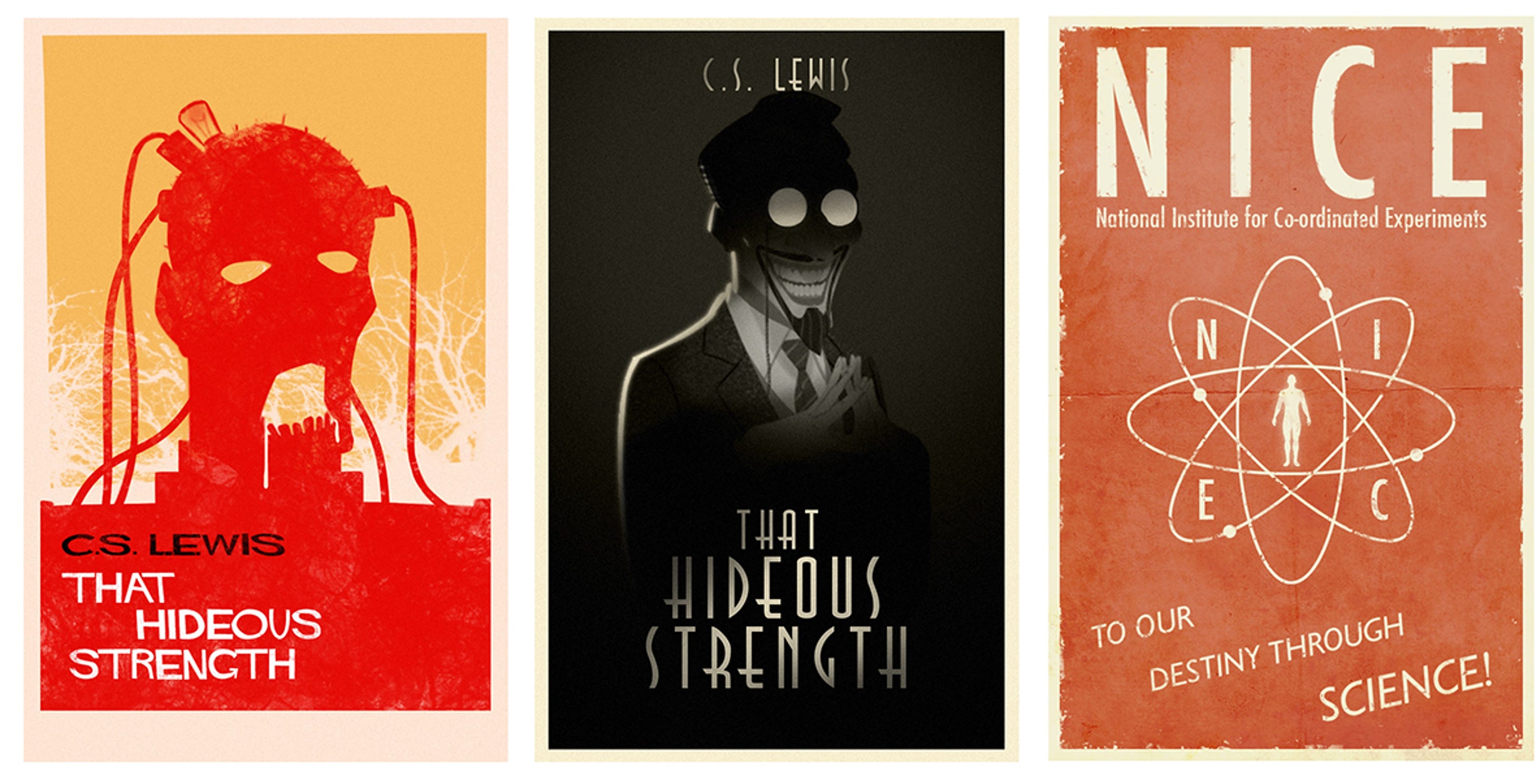
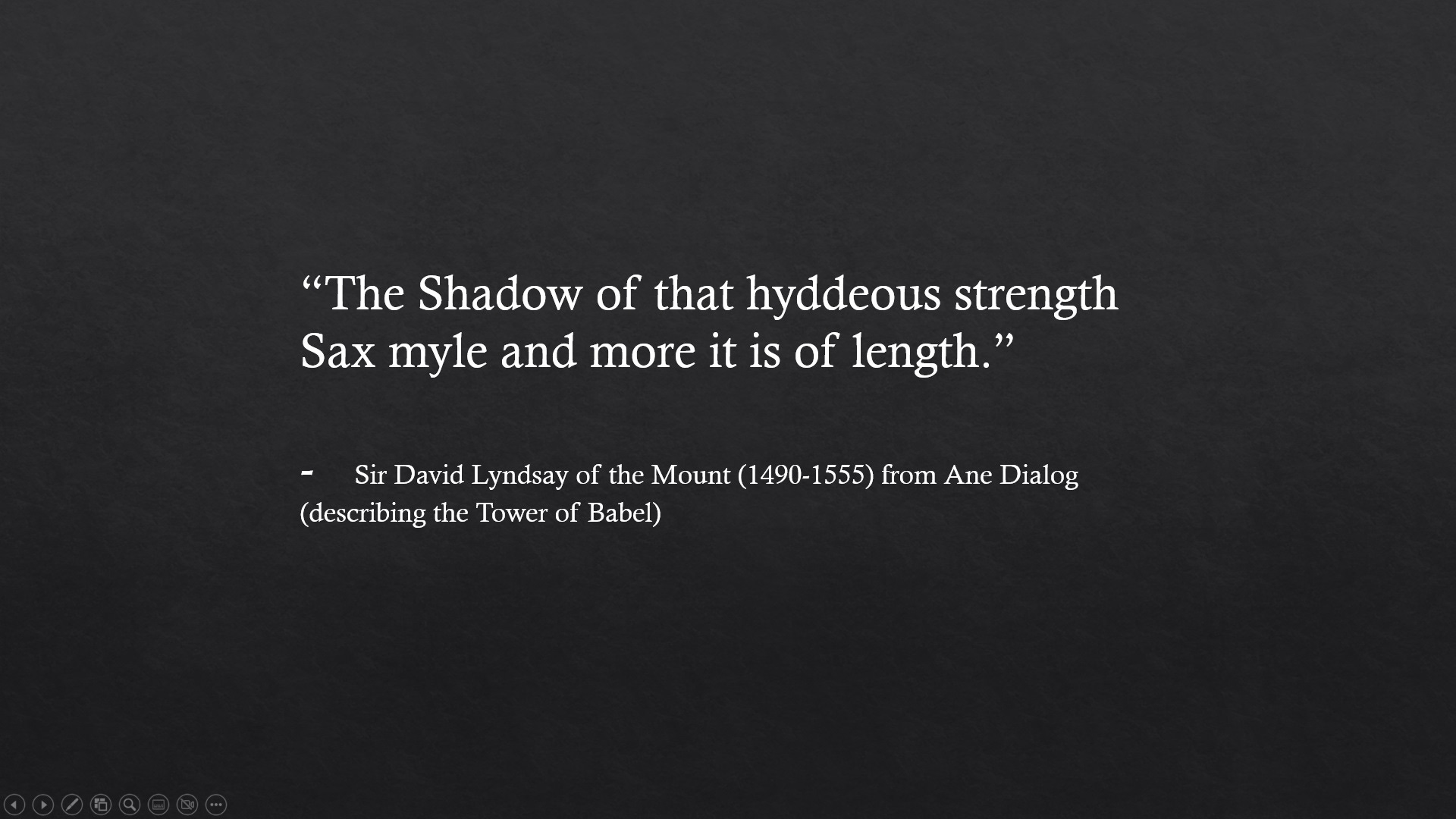

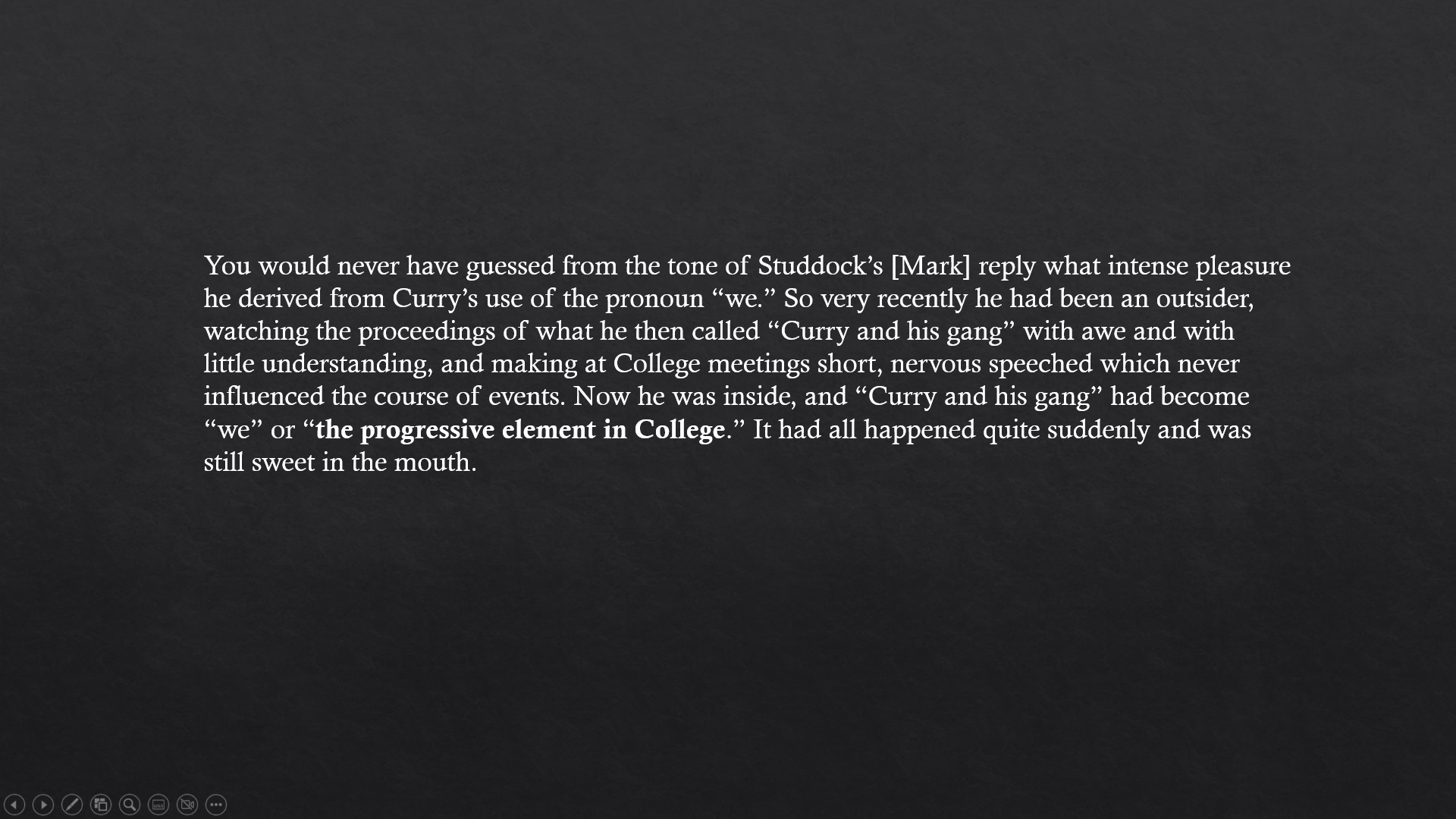
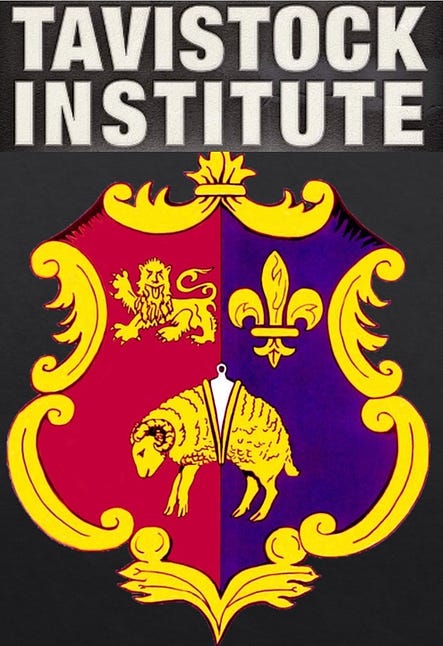
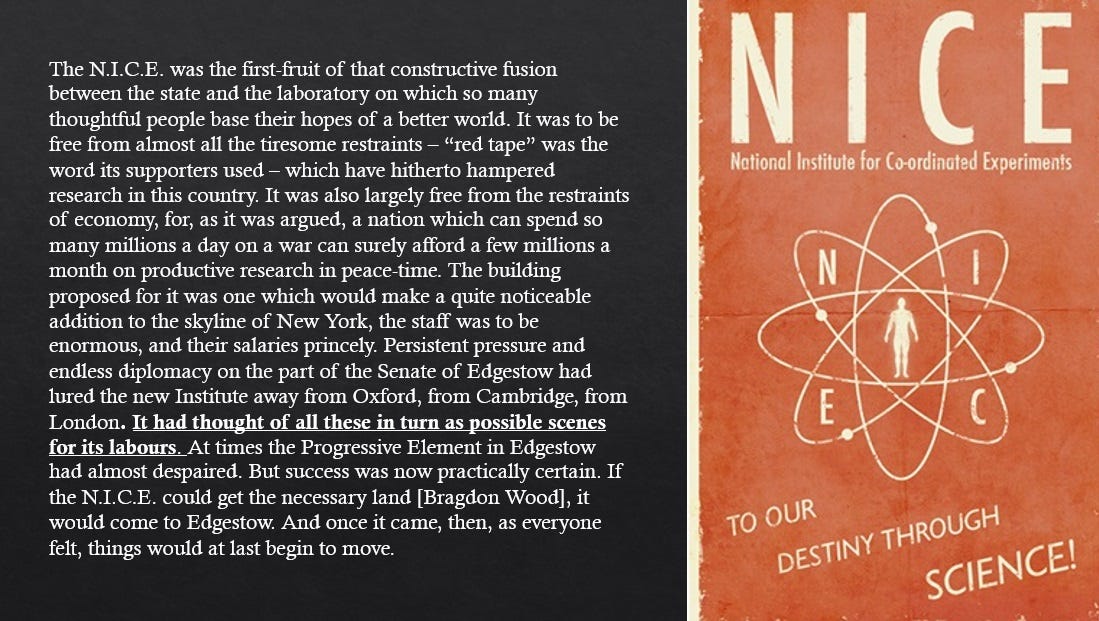

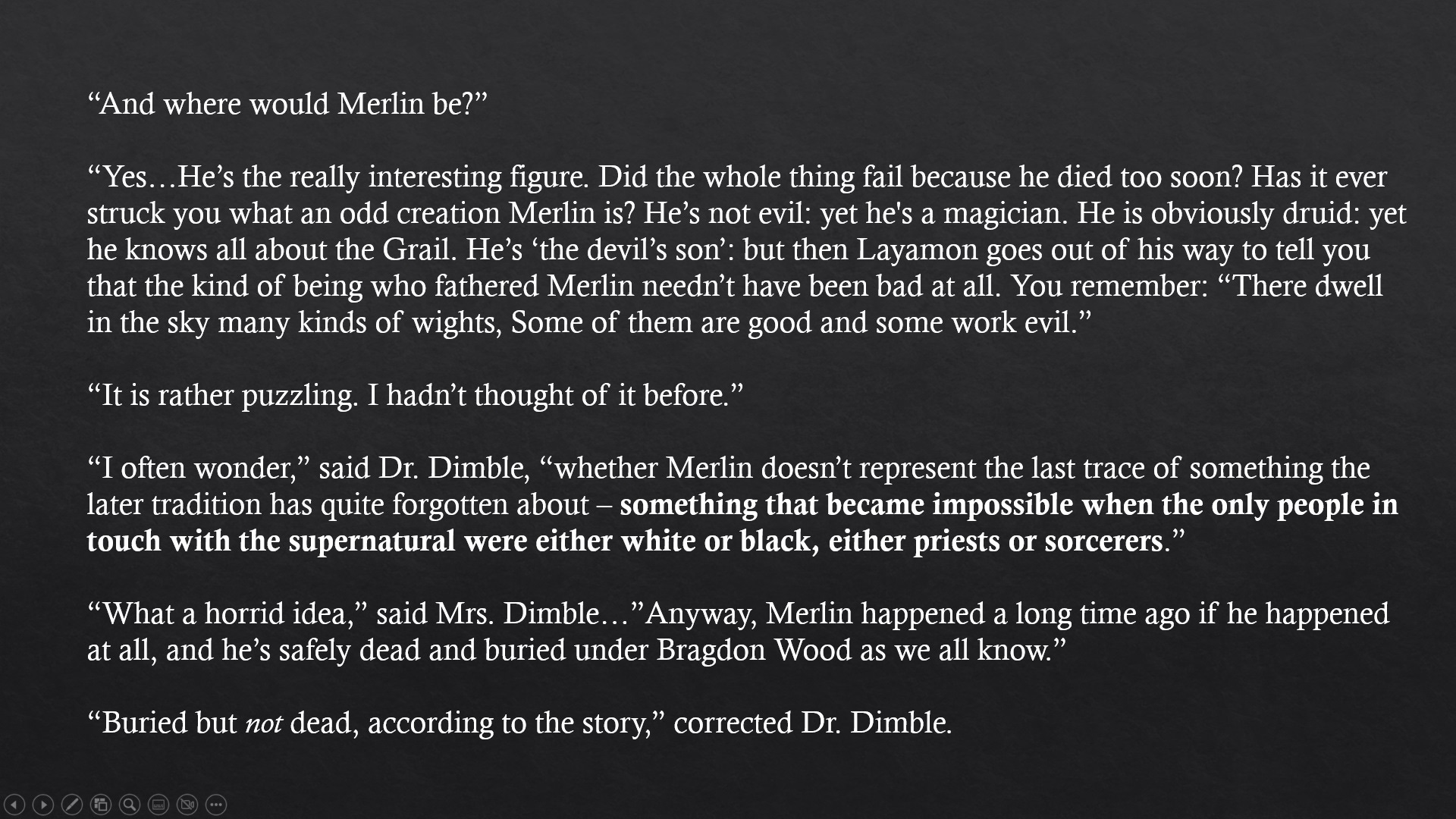
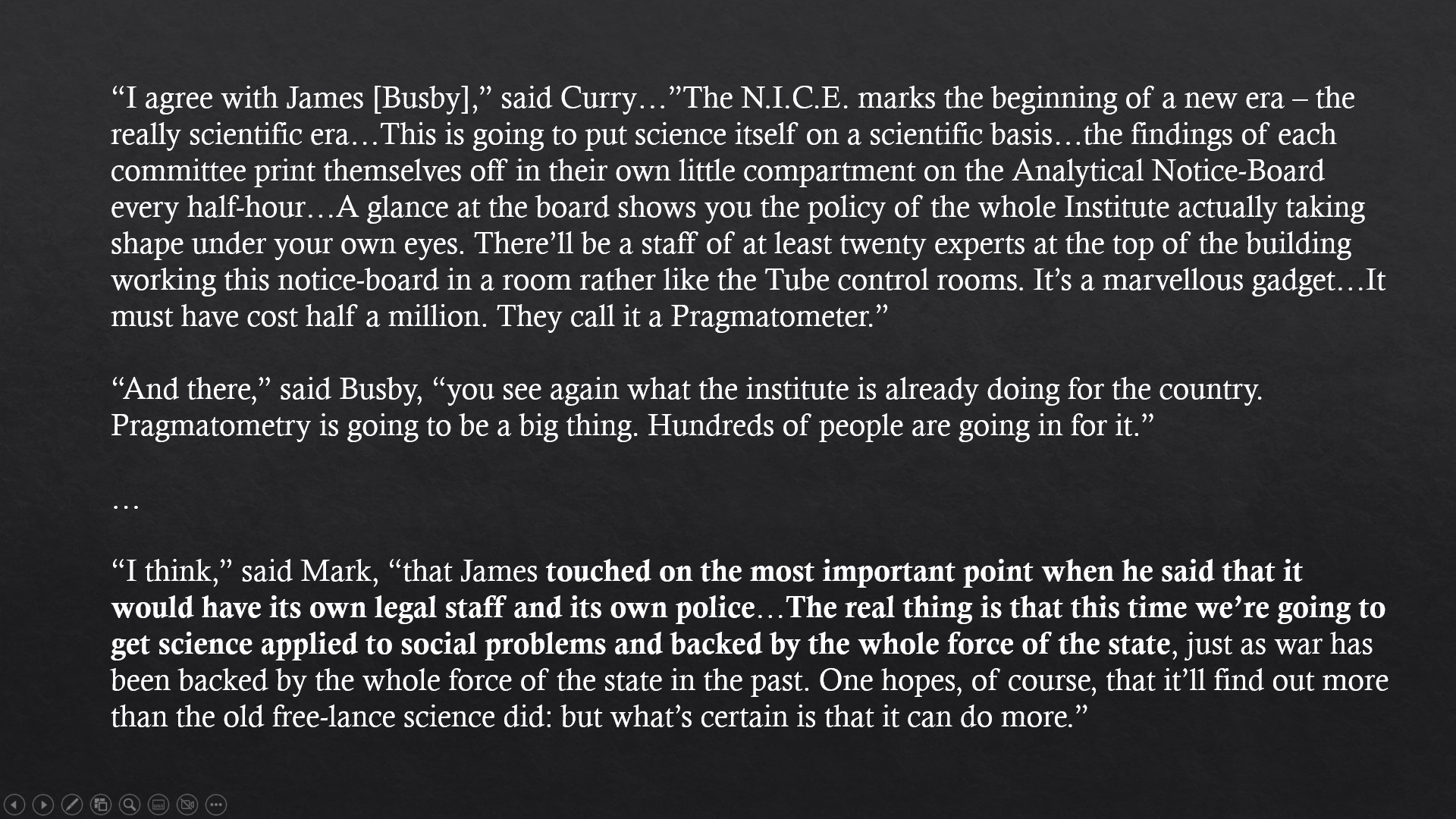
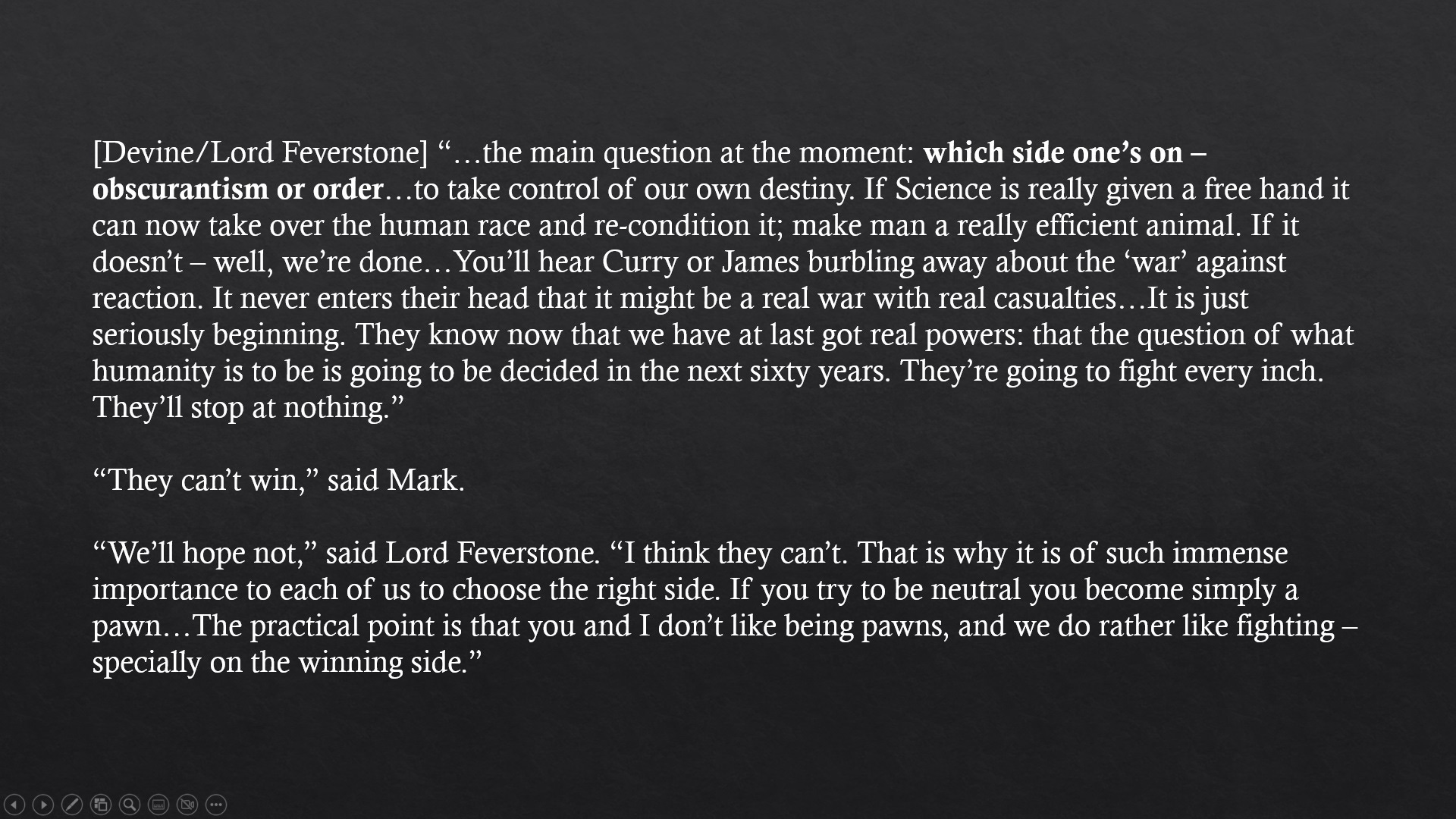
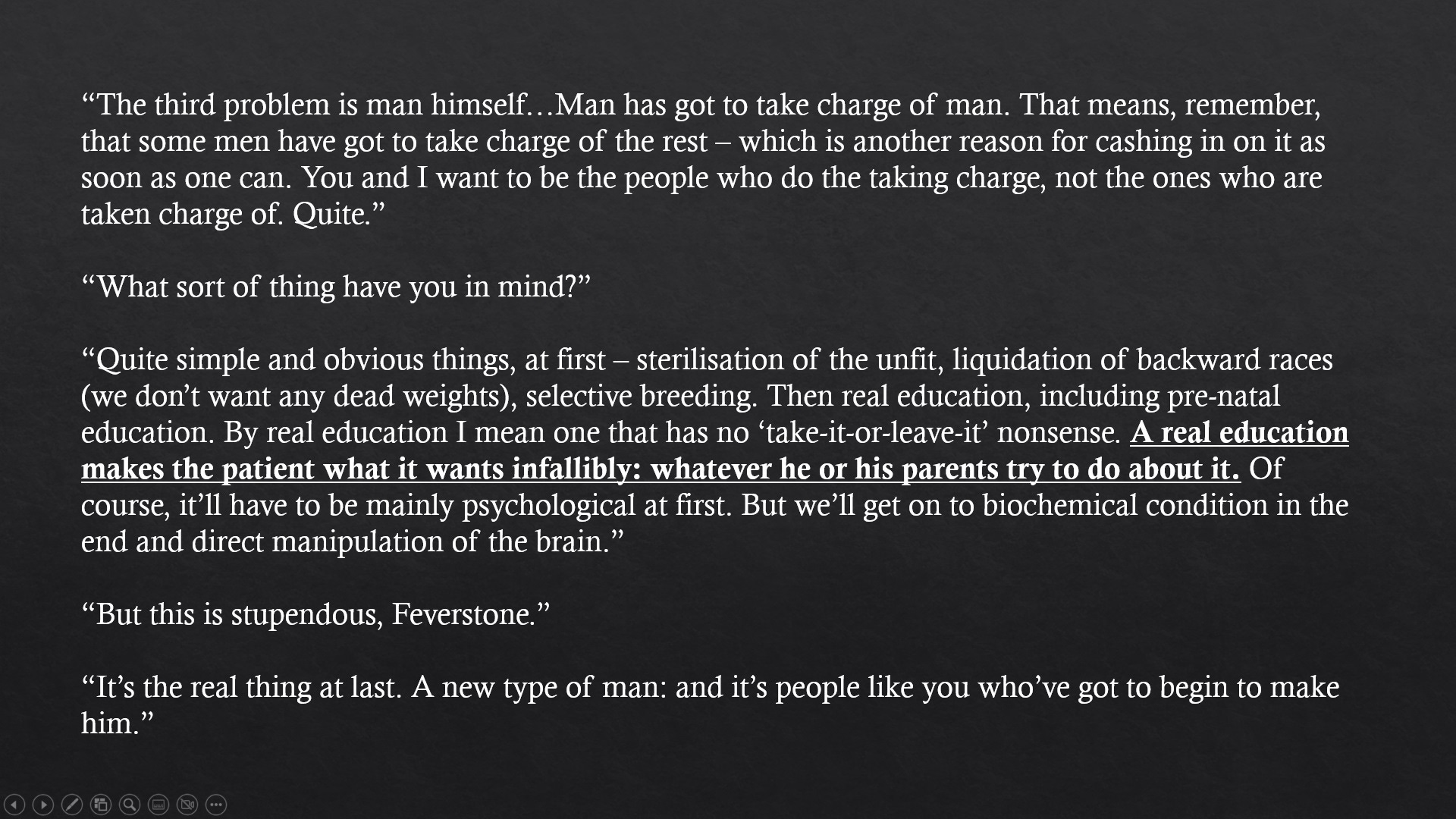
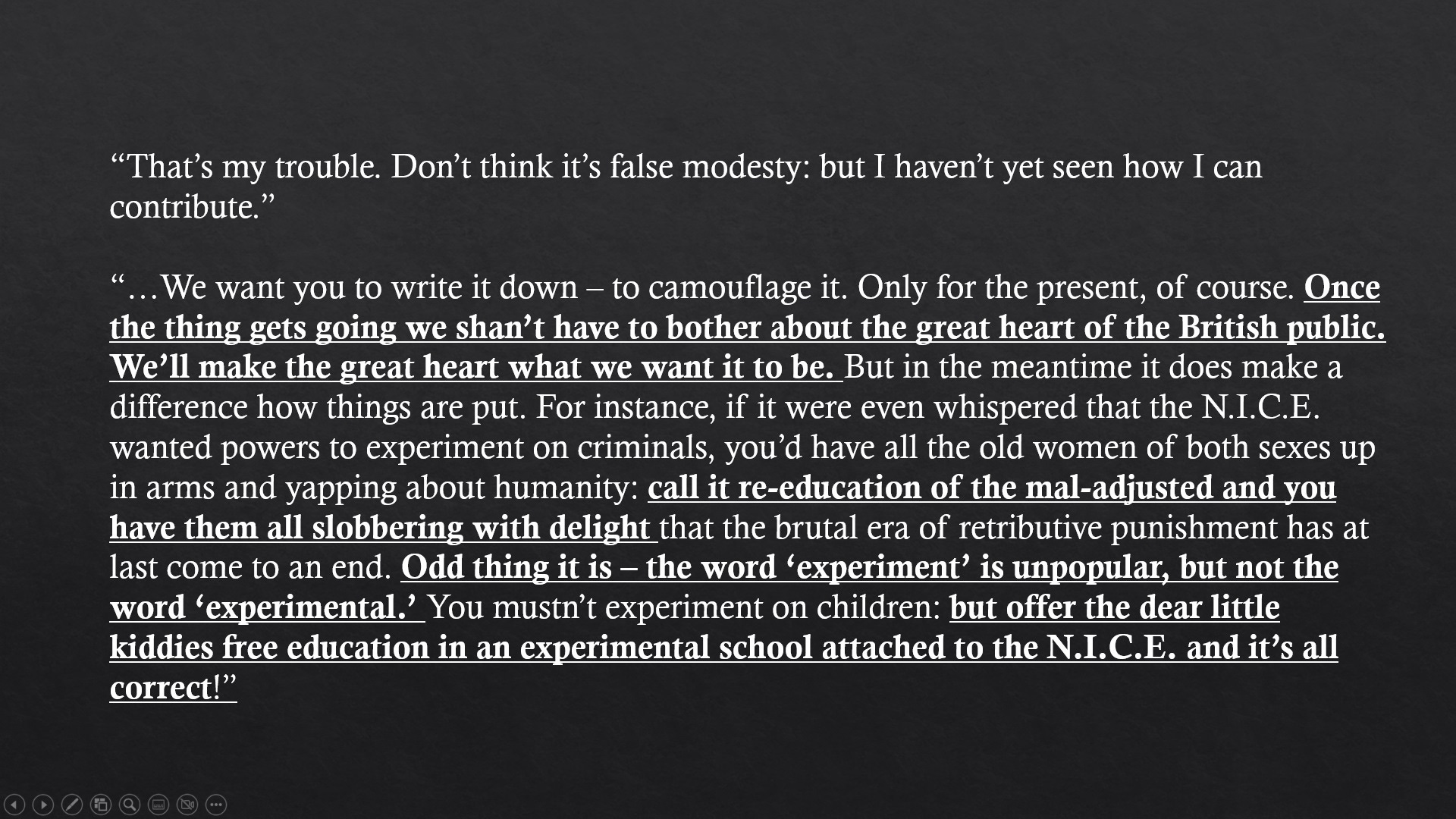
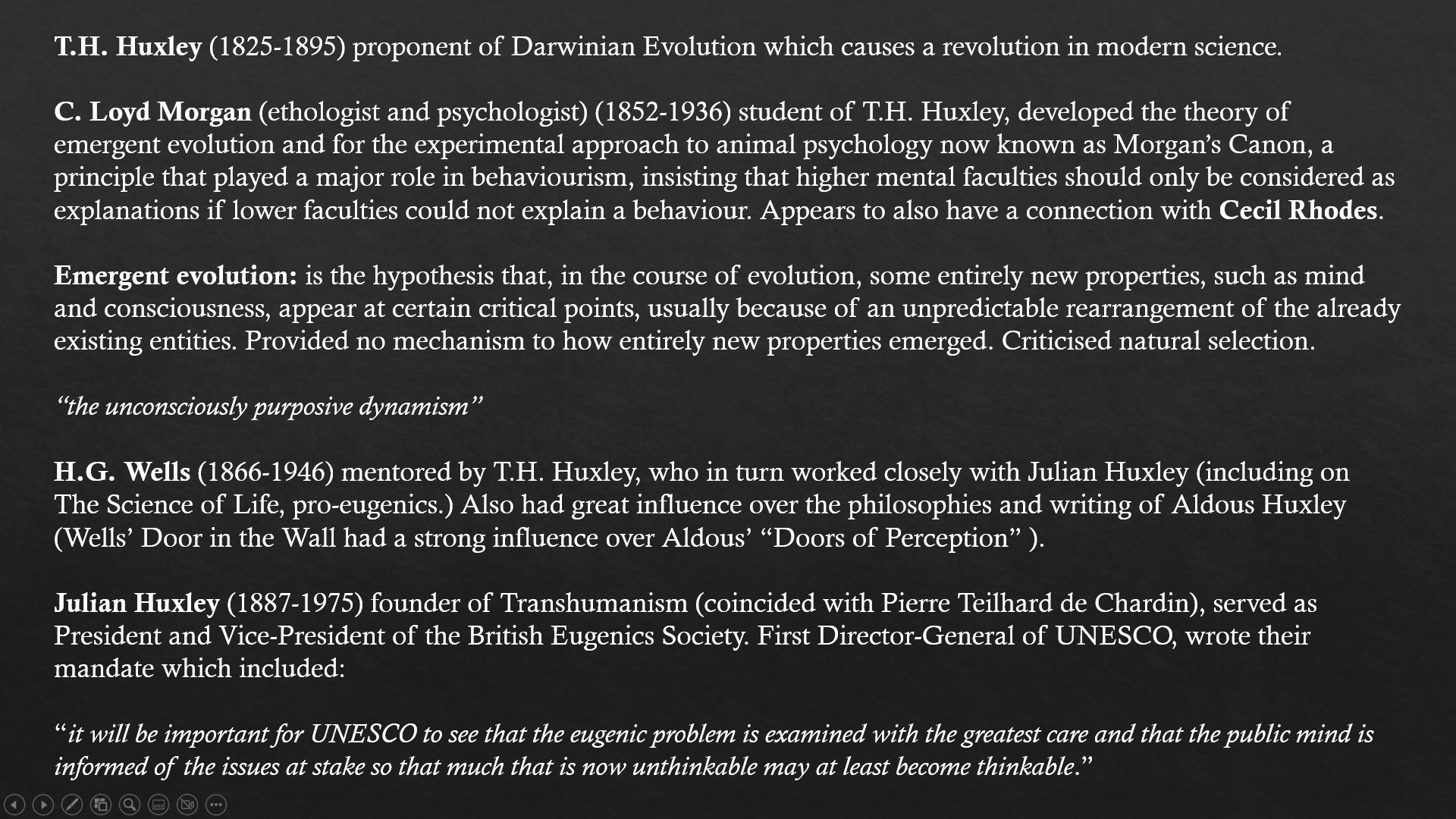
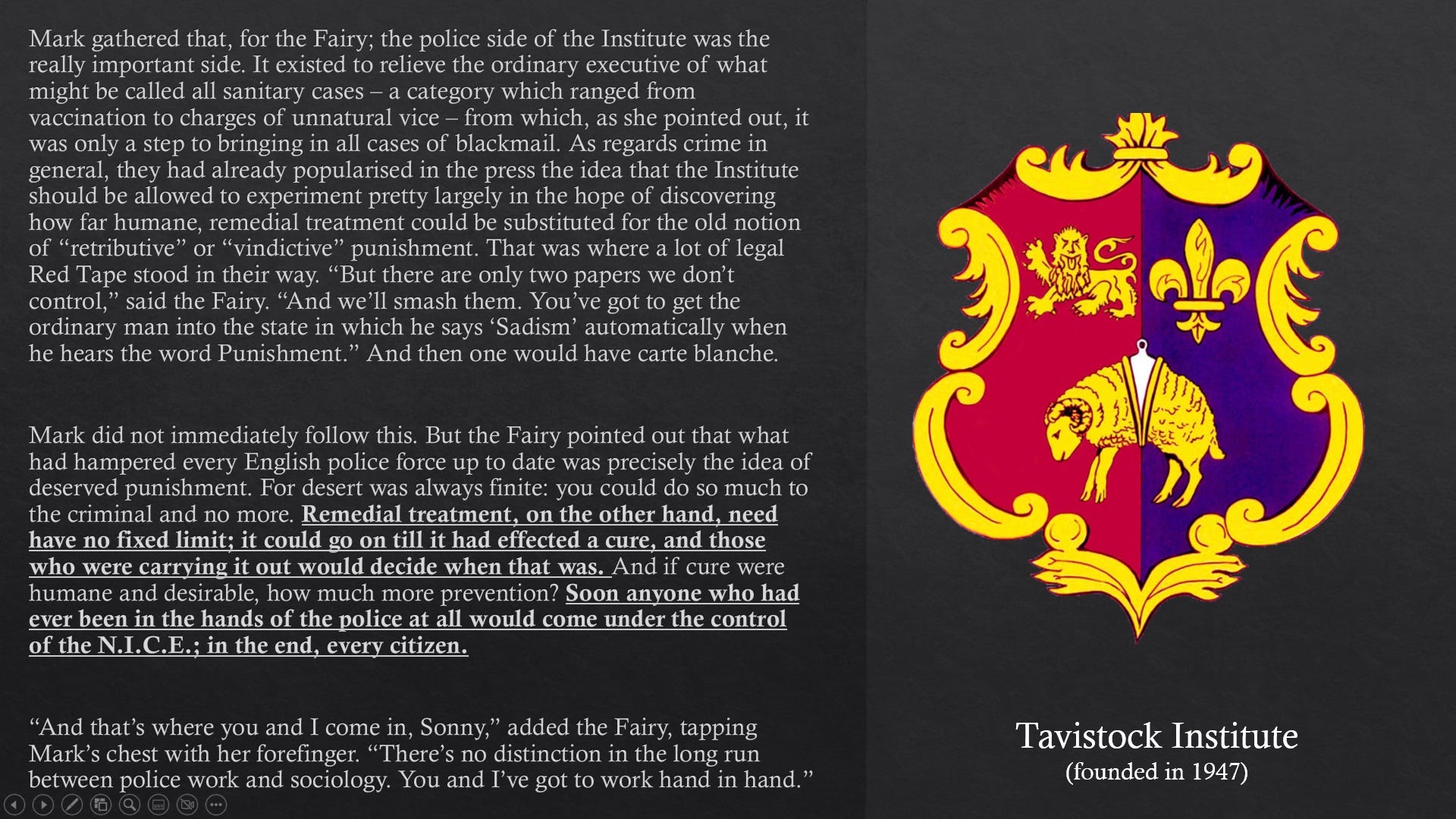
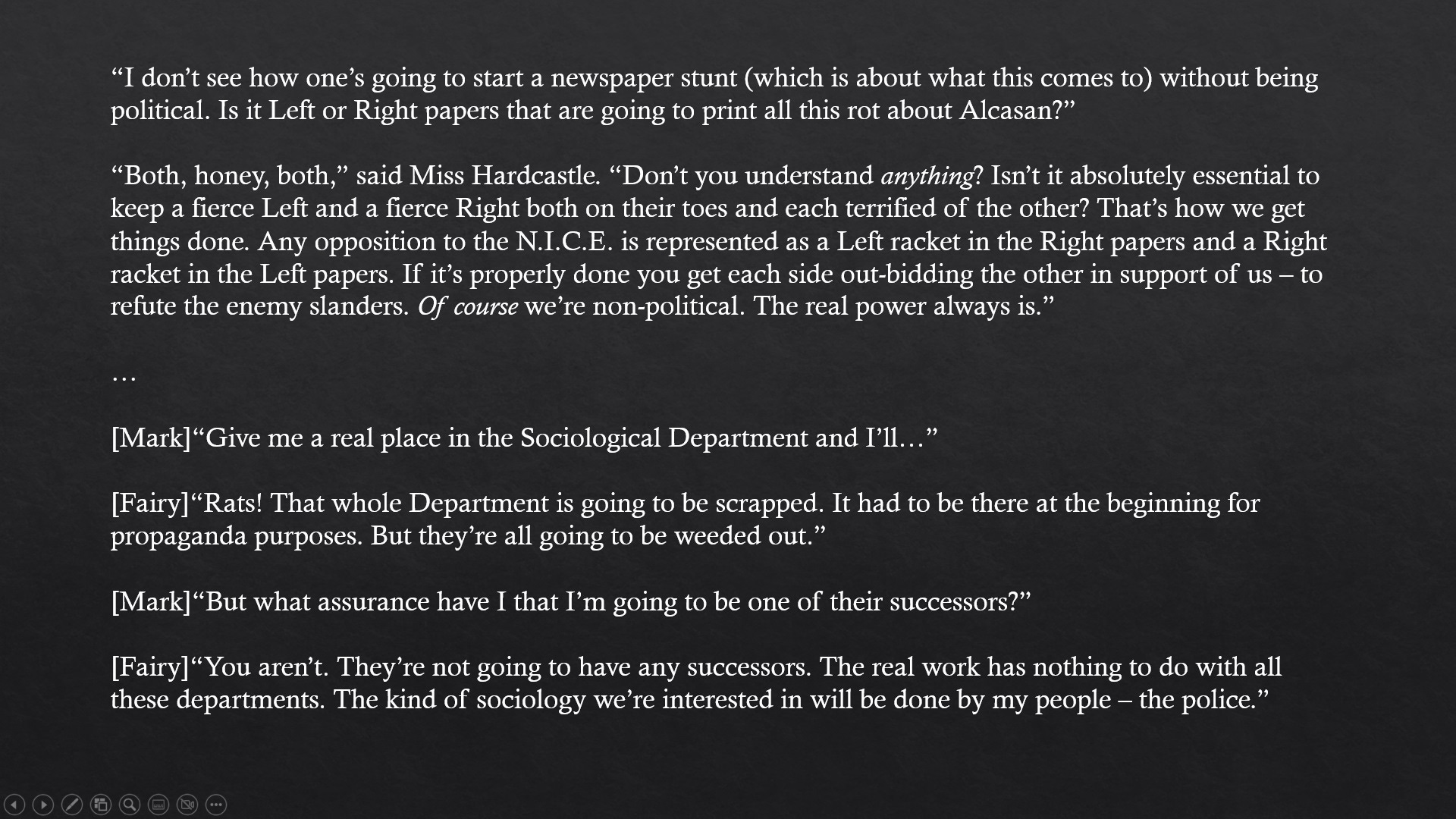
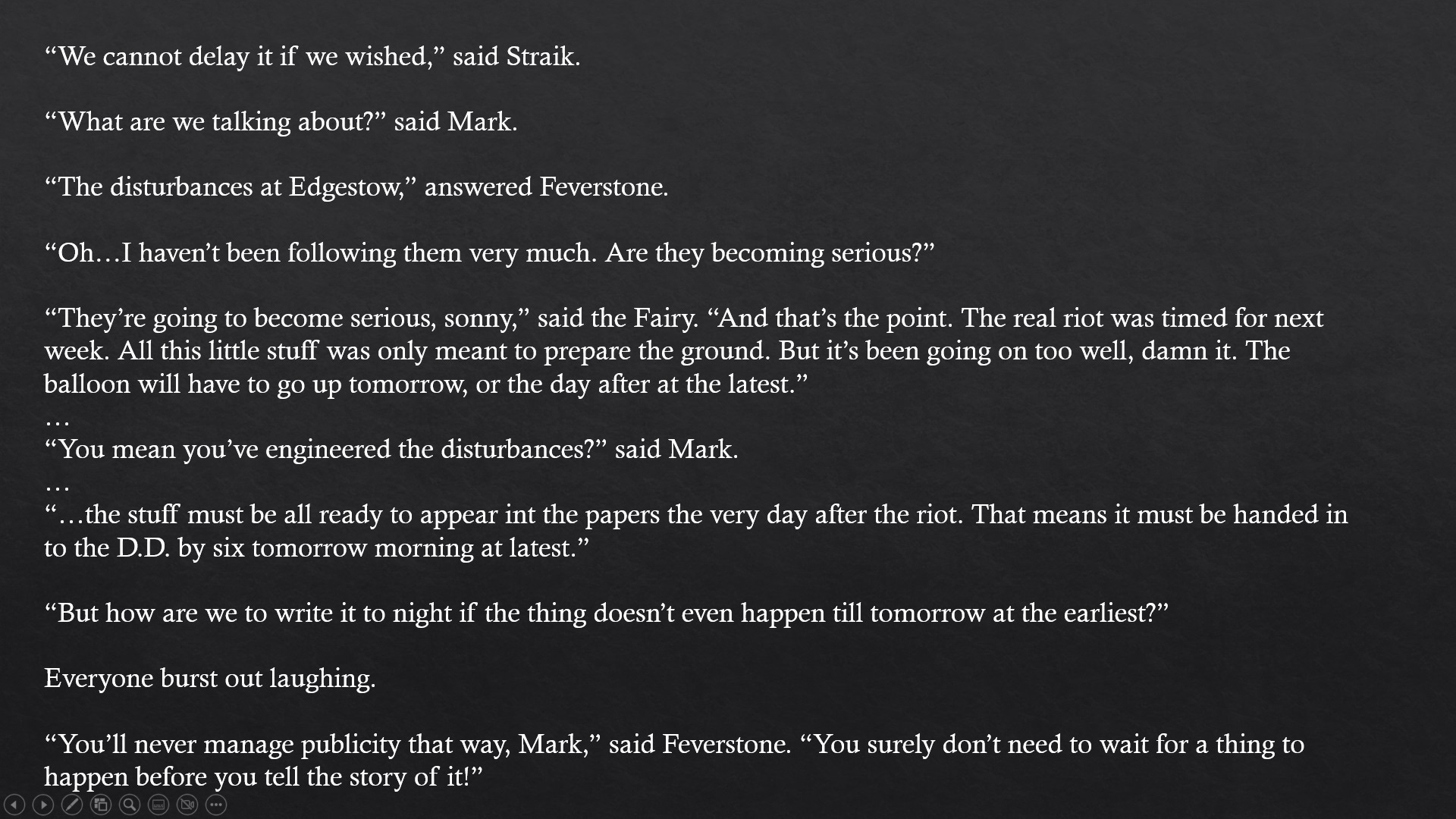
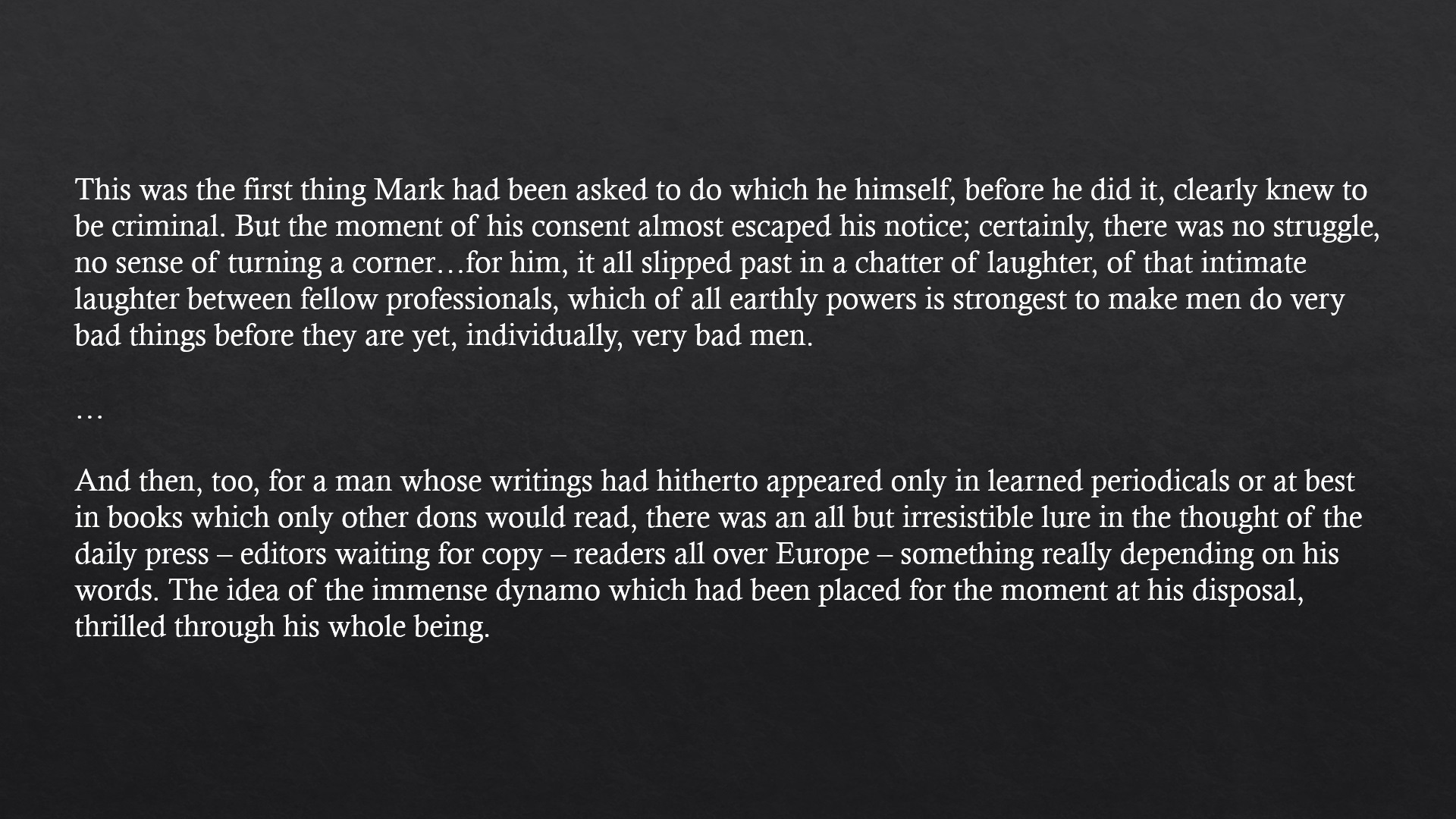
No comments:
Post a Comment